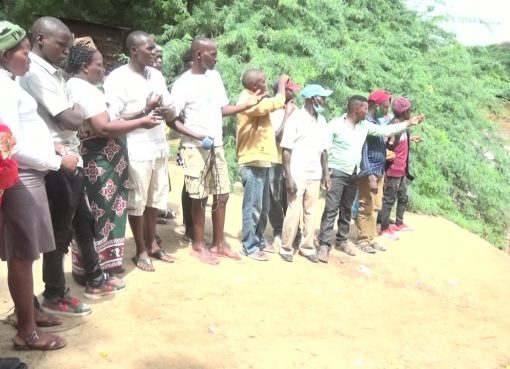The hopes of cotton farmers in Western Kenya have been restored after the introduction of Bt-Cotton, a variety that is genetically modified using genes from a soil dwelling bacterium known as Bacillus thuringiensis (Bt) to resist attack by caterpillar pests, particularly the African bollworm.
However, the genetic transformation of cotton plant does not change the plant characteristics, according to Dr. Miriam Otipa, a senior Research at Kenya Agricultural Research Organization (KALRO) Kabete.
Dr. Otipa said at KALRO Kibos during a field day last week that the Bacterial preparations have also been used in Kenya on vegetables for control of caterpillar pest for over 50 years as commercial foliar sprays.
She explained that research established that Bt-Cotton was effective in controlling the highly destructive caterpillar pests particularly the African Bollworm.
“There was significant reduction in damage of squares and bolls translating to higher yields of seed-cotton,” she pointed out.
The researcher further said less usage of pesticides led to increased populations of beneficial arthropods and natural enemies.
She said increased population of natural enemies like the ladybird in the cotton ecosystems controlled other cotton pests such as red spider mites thus minimizing use of pesticides.
Dr. Otipa said Bt-cotton does not control non-target pests hence minimal spraying will be required.
Asked why farmers should embrace Bt-Cotton right now, Dr. Otipa who was flanked by Dr. Shem Simora of KALRO and Dr. Rebecca Karanja both from KALRO Alupe and Dr. Jackson Achuti of KALRO Siaya said current production averages 572kg/ha compared to the potential of 2,500 kg/ha.
The researcher stated that old, less viable and mixed cotton varieties which were currently being used by farmers had very minimal returns, and as such they could not break even.
He disclosed that the annual national demand for lint stands at 140,000 bales while current production is just about 20,000 bales.
“Damage by pests takes up to 50 percent of production costs,” she observed, warning that “persistent use of synthetic pesticides is expensive, destroys beneficial arthropods, natural enemies and induces pesticide resistance leading to serious pest population explosion.”
On the other hand, she added, pesticide-free environment minimizes pollution.
She revealed that the application and approval process started way back from 2001-2004, when the application process by KARI went through National Bio-safety Committee to introduce Bt-Cotton in Kenya.
Dr. Otipa said from 2004-2010, research on Bt-Cotton was carried out both in green houses and confined field trials at KARI Mwea. From 2011-2016, application process for environmental release and placing on the market of Bt-cotton and varietal derivatives proved successful.
Come 2016, the National Bio safety Authority gave conditional approval for environmental release subject to conduct of Environmental Impact Assessment (EIA).
In 2017, appointment of a 12 member Task Force was done by the Cabinet Secretary (CS) Ministry of Agriculture, Livestock & Fisheries (MoAL&F) to oversee commercialization of Bt-cotton.
She added that by 2017-2018, the EIA on all sites was completed, reports submitted to the National Environmental Management Authority (NEMA) and approval for National Performance Trials (NPTs) granted.
The NPTs are designed to test new plant varieties for performance compared to varieties currently in the market, otherwise termed Value for Cultivation and Use (VCU) trials.
Dr. Otipa said the trials are done across the country at specific agro-ecological zones where the full potential of the variety can be expressed.
“The first season Bt-Cotton NPTs has since been established on seven sites across the country by mid-June 2018. The sites are Mwea, Perkerra, Barwessa, Kibos, Alupe, Bura and Matuga”, stated Dr. Otipa.
Already, four hybrids of Bt-Cotton from an Indian Company, Mahyco, are being evaluated alongside their isoclines and the two local varieties, KSA 81M and HART 89M.
The trials, she said, are designed to test new plant varieties for performance compared to varieties currently in the market, otherwise termed as VCU trials.
Dr. Otipa confided that the NPTs will determine the agronomic potential of a new hybrids to ensure only superior ones are released.
Commercialization of Bt-Cotton hybrids will greatly contribute to the Big Four Agenda through increased cotton productivity thus spurring growth in the textile manufacturing, leading to creation of employment and wealth for Kenyans.
The existing ban on GMOs is expected to be a big obstacle to the commercialization of Bt-Cotton once the NPTs are concluded.
By Joseph Ouma




